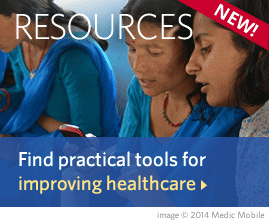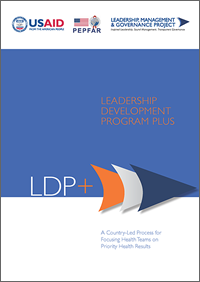
The Leadership Development Program Plus (LDP+) is the enhanced version of the Leadership Development Program (LDP), first delivered by Management Sciences for Health (MSH) in 2002. It is a team-based, results-oriented, participatory leadership development process that enables teams to face challenges and achieve results through a process of action-based learning. Individuals from the same workplace form teams to learn and apply leadership, management, and governance practices to improve a common set of health indicators.
The LDP+ Facilitator’s Guide is for facilitators to use and learn from as they implement the LDP+. It presents the foundations of the program and explains how to conduct all the necessary activities. It is designed to be easy-to-use and adaptable to the specific needs of an organization or LDP+ Improvement Team. The guide includes background information on the LDP+; Detailed instructions on how to conduct all LDP+ meetings and workshops; and handouts for participants.
Read More...
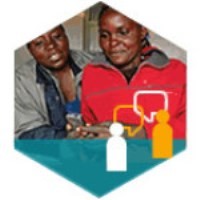
This self-paced course is one hour in length and will provide you with a practical process to improve your coaching skills. The course introduces OALFA – which stands for Observe, Ask, Listen, give Feedback, and Agree – a technique for coaching individuals to improve effectiveness.
Read More...
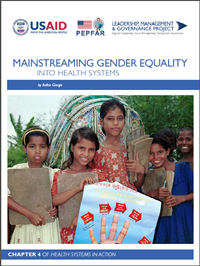
In this publication we will review concepts, approaches, and tools that will help you bring about a change of perspective in designing and implementing policies and programs in health, specifically in relation to gender. The chapter explores the myths and realities regarding gender, the concept of gender mainstreaming and how to move towards this goal, discusses how to conduct a gender analysis and provides links to relevant tools, discusses gender integration into programming and the gender integration continuum, and offers insights into how to integrate gender considerations into the health system using the lens of the WHO health systems building blocks. (This publication is Chapter 4 of Health Systems in Action: An eHandbook for Leaders and Managers.)
Read More...
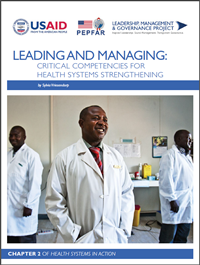
People-centered health systems cannot be strengthened without good management and leadership. This publication shows how you, as a manager of a health program or health services, can apply proven practices for managing and leading to address the challenges you face. Leadership and management skills are needed at all levels of the health system. This chapter throws light on the topic by focusing on behaviors that managers and providers can use in any setting, whether in a community health post or the national Ministry of Health.
Read More...

The eHandbook emphasizes the central, critical element of every health system: people. It shows how to build leadership and management skills for yourself and your organization. It also covers management of the specific systems essential to an overall health system – governance, human resources, finances, supply chain management, health information and association monitoring and evaluation, and health service delivery. This tool can also be accessed as individual topical chapters.
Read More...
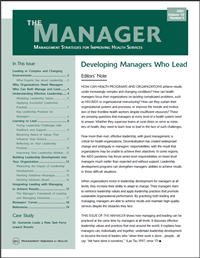
This issue of The Manager shows how managing and leading can be practiced at the same time by managers at all levels. It discusses effective leadership values and practices that exist around the world. It explains how managers can, individually and together, undertake leadership development to become the kind of leaders who “when their work is done…people…all say: ‘We have done it ourselves.’ ” (Lao Tsu 1997, verse 17)
Read More...
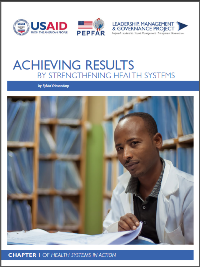
This publication makes the case for putting people at the center of health systems strengthening. When you examine the management systems that make up the overall health system—leadership and governance, human resources, financial management, health information, supply management, and health service delivery—you will see that none of them can operate without skilled and motivated people.
Read More...











